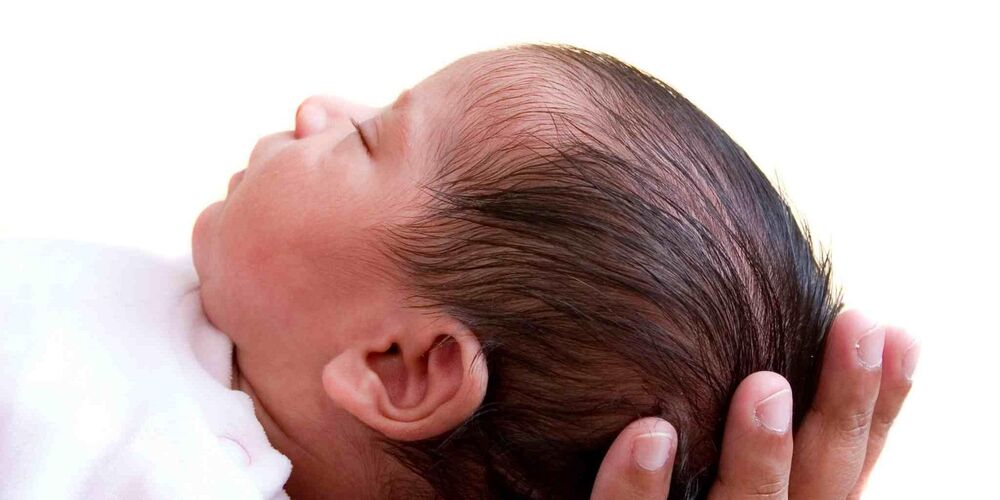We hold to the integrative puerperal nursing which means your new-born will stay with its mother at all times. Your baby will accompany you to all medical examinations. Our rooms are equipped for this.
Baby Safety
Krankenhaus Neuwerk
Protect yourself and your baby
Dear parents,
At last your baby has been born. Our team from the birth clinic is at your side to make this exciting time as safe and pleasant as possible for your family. You play an important role in your baby’s safety, so we have put together some advice how to safely handle your new-born. If you have questions, do not hesitate to ask us.
Warmth and comfort

Safety on wheels
Please use the “cot on wheels“ whenever you move around our ward with your baby. If you would like go for a walk, we will provide you with a pram. This way you cannot trip or drop your new-born by mistake.
Secure sleep

New-borns should mainly sleep on their backs. While you are watching, the baby can also sleep on its side or tummy.
Please be sure not to dress your baby too warmly. It will slowly but surely get used to its surroundings’ temperature. Within its first 24 hours, the new-born may need an additional hat and jacket to its swaddling bag and blanket. After about 36 hours the baby will be fine with only the swaddling bag. Do not put any cuddly toys in the cot. These can lead to suffocation.
Caution with cold sores
It is very important to keep your new-born away from the herpes virus during its first six weeks. A so-called initial infection can lead to meningitis and be lethal. Herpes is spread through droplets caused through physical contact. Whoever has a cold sore and wants to get near your child needs to keep to the following safety measures:
- Do not kiss the baby.
- Wear a mask.
- Wash and disinfect your hands regularly.
- Treat your cold sore.
This is how you can infect your baby:
- Kissing it
- Licking its dummy or cup
- When your baby touches your face
- While giving birth (the herp)
- When your nipple has a herpes infection
The good news is that the virus is not passed on with the breast milk. So you can continue to nurse your baby during an infection.
Bacterial infections
B-streptococci can be passed on to the new-born during birth. This can lead to blood poisoning, meningitis or other severe infections. 90 per cent of the b-streptococcal infections of new-born show within the first days after birth and are treated intravenously with antibiotics.
Since you and your child stay in hospital for a few days after the birth, our nurses and paediatricians can keep a close eye on possible infections during this time.
Nevertheless, there is a possibility of the infection only showing in the second week after birth. For this reason, you and your partner need to stay hygiene-conscious to avoid a secondary infection.
More viruses and bacteria
Principally, new-borns are well protected from viruses and bacteria. However, too many new viruses -as in the season of colds - can be too much for the young immune system. People with a cold should keep a distance to the baby and disinfect their hands regularly. This includes the parents. Ask sick visitors to come again when they are better.